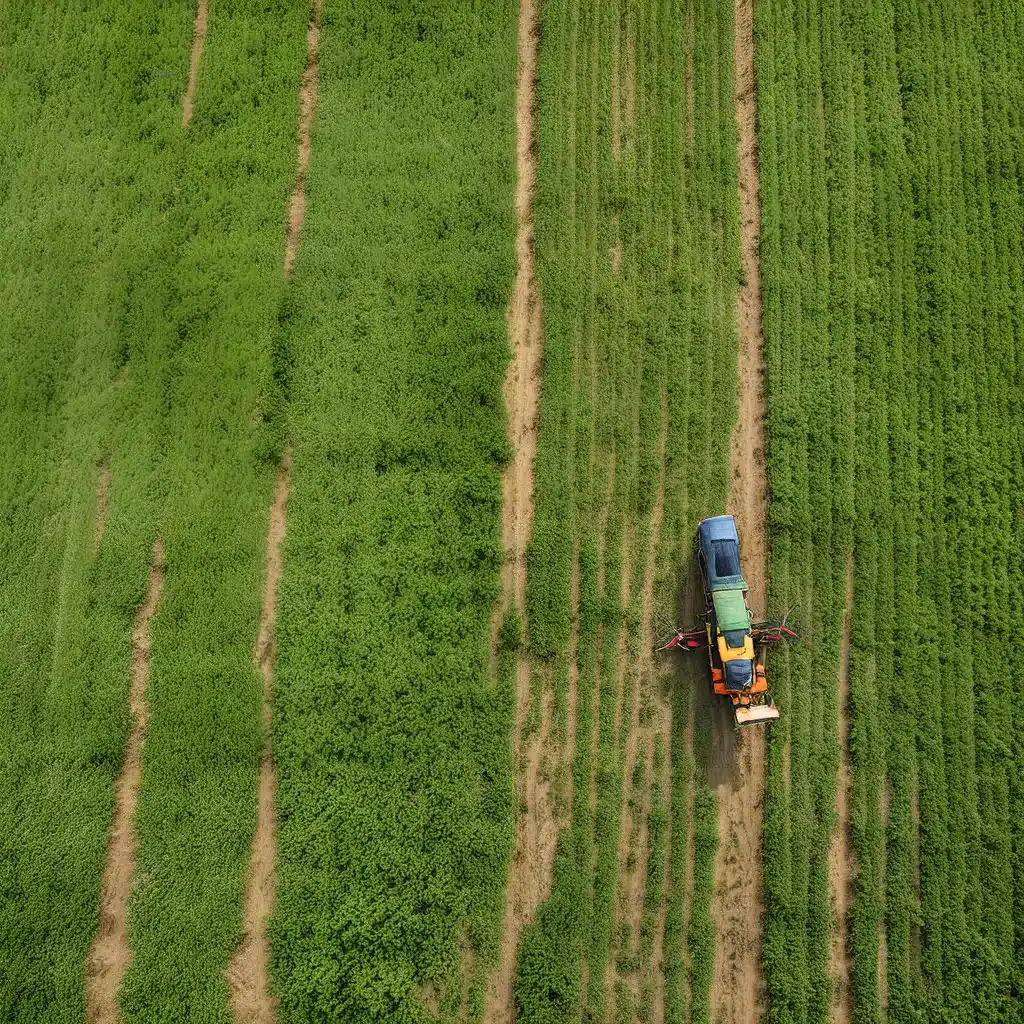
Leveraging Technology for Sustainable and Efficient Farming
Precision agriculture is revolutionizing crop management by integrating advanced technologies and data-driven practices into traditional farming. This innovative approach harnesses the power of sensor networks, IoT, and big data analytics to enhance efficiency, sustainability, and productivity in the agricultural sector. By leveraging these cutting-edge technologies, farmers can make more informed decisions, leading to optimized crop yields and reduced environmental impact.
Precision agriculture, also known as “smart farming,” involves the precise management of crops to improve agricultural outcomes. This method emphasizes the use of technology to monitor and respond to field variability, ensuring that each plant receives the appropriate care. The goal is to apply the right amount of inputs, such as water, fertilizers, and pesticides, at the right time and place, tailored to the specific needs of crops and soil conditions.
GPS and GIS Technology: Global Positioning System (GPS) and Geographic Information Systems (GIS) are foundational to precision agriculture. These technologies enable accurate mapping and navigation, allowing for precise planting, fertilizing, and harvesting. Farmers can create detailed field maps, track machinery movements, and manage field operations with high accuracy.
Remote Sensing and Drones: Remote sensing technologies, including satellite imagery and drones equipped with multispectral cameras, provide valuable data on crop health, soil conditions, and pest infestations. This real-time information allows farmers to identify and address issues promptly, leading to better crop management and reduced reliance on chemical treatments.
IoT and Sensor Networks: The Internet of Things (IoT) and sensor networks play a crucial role in precision agriculture by offering real-time monitoring of environmental parameters, such as soil moisture, temperature, and nutrient levels. These sensors provide continuous data streams, enabling precise irrigation and fertilization, which are essential for maintaining optimal crop conditions.
Big Data and Analytics: Big data analytics in precision agriculture involves processing large volumes of data collected from various sources to identify trends and patterns. This analytical capability helps farmers make informed decisions about crop management, resource allocation, and risk mitigation, ultimately improving productivity and profitability.
Enhancing Productivity and Sustainability
The integration of these advanced technologies in precision agriculture has led to numerous benefits, revolutionizing crop management and driving sustainable practices.
Enhanced Productivity: Precision agriculture allows for more accurate application of inputs, resulting in higher crop yields. By ensuring that each plant receives the appropriate care, farmers can significantly boost their productivity.
Sustainable Farming: By optimizing the use of water, fertilizers, and pesticides, precision agriculture reduces environmental impact. This sustainable approach helps preserve natural resources and promotes eco-friendly farming practices.
Cost Efficiency: Precision agriculture reduces waste and increases operational efficiency, leading to significant cost savings. Farmers can achieve better results with fewer inputs, enhancing their profitability.
Improved Decision-Making: Access to real-time data and advanced analytics empowers farmers to make better-informed decisions. This proactive management style minimizes risks and maximizes returns, ensuring long-term success.
Overcoming Challenges in Precision Agriculture
Despite the numerous benefits of precision agriculture, the adoption of these technologies faces several challenges that must be addressed to ensure widespread implementation.
Initial Cost: The initial cost of technology and equipment can be prohibitive, especially for small-scale farmers. Governments and organizations need to provide financial support and subsidies to make these solutions more accessible.
Technical Expertise: There is a need for technical expertise and ongoing training to effectively utilize advanced precision agriculture tools. Establishing training programs and providing user support are crucial for successful adoption.
Data Quality and Integration: Inconsistent and poor-quality data can hinder the effectiveness of analytics and decision-making. Developing standardized protocols for data collection and management is essential to ensure high-quality, reliable data.
Connectivity and Infrastructure: Limited internet connectivity and digital infrastructure, especially in rural areas, pose challenges for the deployment of IoT and sensor networks. Investing in improving connectivity and infrastructure is crucial for the widespread adoption of precision agriculture technologies.
Privacy and Security: Farmers may be hesitant to adopt precision agriculture technologies due to concerns about data privacy and security. Implementing robust measures to protect farmer data can build trust and encourage the adoption of these technologies.
The Future of Sensor Networks in Precision Agriculture
As the agricultural industry continues to evolve, sensor networks and IoT technologies will play an increasingly pivotal role in shaping the future of farming. Technological advancements are making these tools more affordable and accessible, paving the way for broader adoption.
Governments, research institutions, and private organizations are investing heavily in the development and deployment of precision agriculture solutions. By addressing the challenges and barriers to adoption, these stakeholders are working to ensure that the benefits of sensor networks and IoT are realized across the agricultural landscape.
The future of precision agriculture is undoubtedly bright, with the potential to enhance food security, boost productivity, and promote sustainable farming practices. As the world grapples with the challenges of feeding a growing population while preserving the environment, sensor networks and IoT-powered precision agriculture offer a promising path forward.
Explore the Sensor Networks Organization to learn more about the latest advancements and applications of sensor networks in various industries, including the transformative impact on precision agriculture.